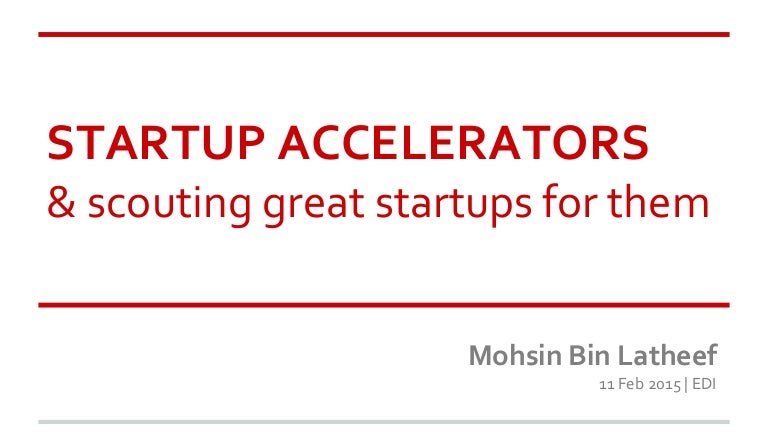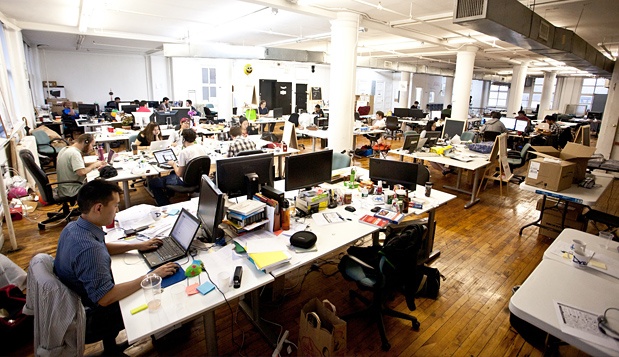


However, the measurable impact accelerators have on performance varies widely among programs — not all accelerators are created equally. Early evidence demonstrates the significant potential of accelerators to improve startups’ outcomes, and for these benefits to spill over into the broader startup community. Each company is given 120,000 in funding annually, with the startups accelerated by Y Combinator totaling over 100 billion in Accelerators are playing an increasing role in startup communities throughout the United States and beyond.
Accelerators may share with these others the goal of cultivating early-stage startups, but it is clear that they are different, with distinctly different business models and incentive structures.Yet the confusion is real, including within the startup sector itself. The accelerator experience is a process of intense, rapid, and immersive education aimed at accelerating the life cycle of young innovative companies, compressing years’ worth of learning-by-doing into just a few months.Susan Cohen of the University of Richmond and Yael Hochberg of Rice University highlight the four distinct factors that make accelerators unique: they are fixed-term, cohort-based, and mentorship-driven, and they culminate in a graduation or “demo day.” None of the other previously mentioned early-stage institutions — incubators, angel investors, or seed-stage venture capitalists — have these collective elements. Startups enter accelerators for a fixed-period of time, and as part of a cohort of companies.
Some very well-known companies belong to this group, including “unicorns” AirBnB, Dropbox, and Stripe, among others.Accelerators have clearly taken hold in recent years. During this period, these companies have raised a total of $19.5 billion in funding, a number that will surely increase as accelerator programs continue to turn out companies and recent graduates work their way to maturity.Accelerator graduates that went on to raise additional venture capital investment had a median valuation of $15.6 million during this period, and an average valuation of $90 million. Collectively, they invested in more than 5,000 U.S. The number of U.S.-based accelerators increased by an average of 50% each year between 20.I was able to identify 172 U.S.-based accelerators in existence during the 2005–2015 period. Both programs have evolved over the years and have traditionally been considered the two premier accelerator programs globally.Growth in U.S.-based accelerators really took off after 2008, as it did for startups, early-stage capital, and venture investment more broadly. In other words, two of every three “accelerators” are not in fact accelerators, based on this criterion.Silicon Valley–based Y Combinator launched the first seed accelerator program, in 2005, in Boston, followed closely by TechStars, which was founded the next year in Boulder, Colorado.
When matched with a comparable group of companies that didn’t participate in accelerator programs, those that graduated from top programs saw an acceleration in reaching key milestones, such as time to raising venture capital, exit by acquisition, and gaining customer traction. Here’s what they’ve found: Four papers stand out as contributing to our understanding. In this way, founders compress years’ worth of learning into a period of a few months.Feld’s explanation seems sensible to me, but what evidence is there? The relative novelty of accelerators means that little systematic research exists on the effect they have on the participating companies and on the broader startup community. Learning-by-doing is vital to the process of scaling ventures, and the point of accelerators, suggests Feld and others, is to accelerate that process.
In other words, the value of accelerators seems real and likely comes from the intensive learning environment itself. Additional research indicates the channels through which accelerators aid venture development, demonstrating that it is primarily about learning in the accelerator experience, not potentially confounding factors such as credential signaling to future investors, selection bias, or previous founder experience at top companies. A comparison of graduates of top accelerators with a set of similar startups that instead raised angel funding from leading angel investment groups found that the accelerator graduates were more likely to receive their next round of financing significantly sooner and were more likely to be either acquired or to fail.



 0 kommentar(er)
0 kommentar(er)
